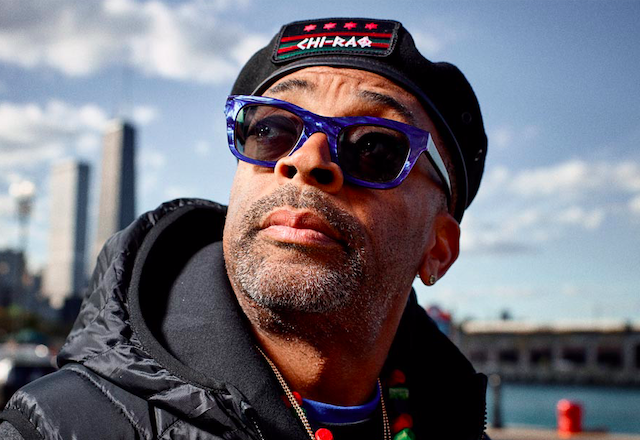When New Yorker critic Richard Brody ran his review of Spike Lee’s Chi-Raq yesterday, many Chicagoans no doubt wondered whether he'd seen the same film that they had. The 2,000-word gusher finds Brody calling the film “free, personal, intimate, and beautiful,” its temper-tantrum didacticism "radical patriotism," its dopey rhymed dialogue “pugnacious, witty, and whimsical," and its gross treatment of women “flamboyant fury.” Even Lee’s cartoonish portrayal of South Side gun violence, according to Brody, makes Chi-Raq “a work of such freedom and fury that it runs the risk of moralizing misinterpretation.”
Which must be what we here in Chicago are doing. No sooner had Chi-Raq hit theaters last Friday than locals dismissed it. Chief Keef’s manager Idris Dykes chastised Lee in GQ last week for failing to even contact the community of rappers that put the term "Chiraq" center stage. Chance the Rapper later called the film “exploitive and problematic” on Twitter, which Lee promptly rebuffed by … pointing out that his dad works for the mayor. And King Louie, the rapper who popularized the phrase “Chiraq,” released a diss track last Friday simply called “Fuck Spike Lee."
Local critics didn’t come down much differently. The Reader panned Chi-Raq for focusing more on Chicago’s body count than its victims. My colleague Tomi Obaro called the film “simultaneously overwrought and underwhelming,” a shot in the dark at a direly deserving subject. Mere hours after the film premiered at the Chicago Theatre, Tribune critic Michael Phillips said it was “destined to make almost everybody angry.”
Which, amazingly, it hasn't. Brody’s positive review is the newest and most effusive, but it falls in line with a string of takes from national critics — mostly white and mostly veterans — who seem to think Chi-Raq is the most seminal thing since Malcolm X. Writing in Forbes, Mark Hughed called Chi-Raq “the year’s most relevant film” and “one of Lee’s greatest.” Time’s Stephanie Zacharek dubbed it a “vital, lively piece of filmmaking.” And Manohla Dargis’s Critics’ Pick in the New York Times drew such ire for describing Chicago as “washed with blood” that it distracted from her actual take: “fiercely funny and deadly sincere.”
The cause for such dissenting opinions is anyone’s guess, but it might have something to do with Spike’s understanding of Chicago itself. Despite appointing Gresham-raised Father Michael Pfleger as Chi-Raq's "spiritual consultant," the Chicago he paints looks an awful lot like the one in the national news media: bloody, hopeless, and drastically oversimplified. As a response to that fictional Chicago — the one Dargis and Brody know — Chi-Raq probably looks great. But to Chicagoans, it’s another caricature of a place that is much more complicated than it's painted to be.



